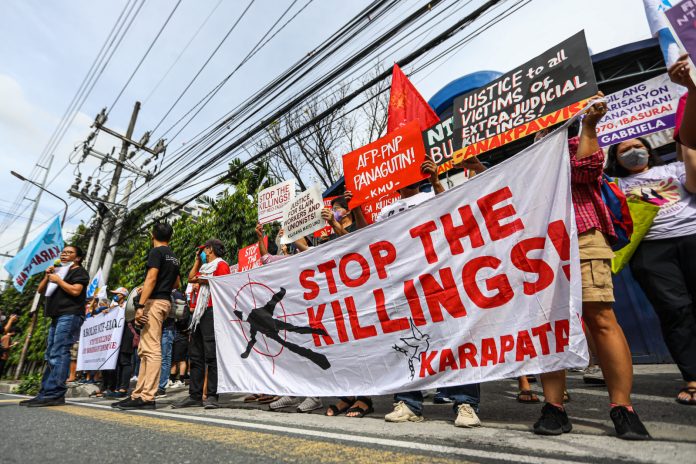It is a trap for the Episcopal Commission on Public Affairs of the Catholic Bishops’ Conference of the Philippines (CBCP) to be part of or be represented in the National Task Force to End Local Communist Armed Conflict (NTF-ELCAC).
NTF-ELCAC was established in December 2018, through Executive Order No. 70 signed by then President Rodrigo Roa Duterte as a government apparatus to address the communist rebellion.
Since then, the agency has been notorious for its red-tagging of human rights defenders, activists, lawyers, church people, personalities, and even CBCP members.
It became a money machinery for military officials to make pseudo-solutions to the communist rebellion. The agency enjoyed a multi-billion budget from the tax-payers money (Php 19 billion for 2021, Php 17.1 billion for 2022, and Php 10 billion for 2023); and in fact, crisscrossing other line agencies of the government with regard to the implementation of projects.
This agency is laden with military apparatus and personalities who have questionable agendas in making money out of the local conflicts – plain and simply making money from the agency itself and not solving the social crisis.
Accountability on the Assassinations and Deaths
If the CBCP accepted this position offer, the conference could have consulted bishops, church organizations, and civil society groups before joining NTF-ELCAC.
Bishop Gerardo Alminaza of San Carlos had consistently spoken of the abolition of the said agency due to its unceasing red-tagging and acting as an enabler of assassinations in Negros. The prelate was also red-tagged by the agency.
“The ‘whole-of-nation approach’ advocated by the (NTF-ELCAC) has led to the weaponization of ‘red-tagging’, armed harassment, and senseless killings,” Bishop Alminaza said following the massacre of the Fausto family in Negros on June 14, 2023.
Of the more than 32,000 deaths of Duterte’s brutal regime, there were 457 civil and political killings from July 2016 to November 2022 as reported by Karapatan, an imprint of the impunity of the Duterte Regime and of the NTF-ELCAC.
Acknowledging the prophetic voices within the CBCP, and of the conference’s independent political positions, the best way to make it silent is to entice the participation of the bishops’ conference into its fold, whether representational or nominal.
The NTF-ELCAC is accountable for the deaths and assassinations, it can be brought to court by the families of victims and survivors soon, not during the BBM administration, maybe in the post-totalitarian regime.
Becoming part of this machinery, the Episcopal Commission on Public Affairs of the CBCP by its participation and membership can be made accountable for the agency’s acts of violence and human rights violations.
Counter solution
The problem of rebellion is not the communist rebellion per se, but the need to address the causes of poverty, the endemic political corruption in the government systems, and the absence of integral peace.
Certainly, the participation of CBCP can be carved out, outside of the corrupt-infested NTF-ELCAC.
Instead, the Episcopal Commission on Public Affairs can suggest a continuing integral approach to the peace agreement, one that addresses the systemic causes of poverty.
Moreso, participate with human rights defenders and the European Parliament in the campaign to abolish the NTF-ELCAC, as noted in its communique “condemns all threats, harassment, intimidation and violence against those seeking to expose allegations of extrajudicial killings and other human rights abuses in the country; denounces government officials’ practice of ‘red-tagging’ activists, journalists and critics, exposing them to potential harm and, in this regard, calls for the abolition of the NTF-ELCAC in charge of carrying out red-tagging…” (European Parliament resolution on the recent human rights developments in the Philippines.)
Peace can be best achieved by addressing the roots of injustice—one that can end systemic poverty.
Bishop Alminaza said, “Peace operates in the values of justice and the protection of human rights. It cannot be used in a totalitarian manner that only harvests fear and systemic violence affecting local communities, non-government organizations, and leaders of people’s organizations… Peace cannot be fueled by bombing attacks in the countryside and street assassinations.”
Brother Jaazeal Jakosalem, OAR, is a Filipino Laudato Si’ reader. A member of Pusyon Kinaiyahan, an environmental group in the Visayas. He is currently based in Germany as a member of PCPR-Europe, working for the Philippine campaigns related to the protection of human rights.
The views expressed in this article are the opinions of the author and do not necessarily reflect the editorial stance of LICAS News.









